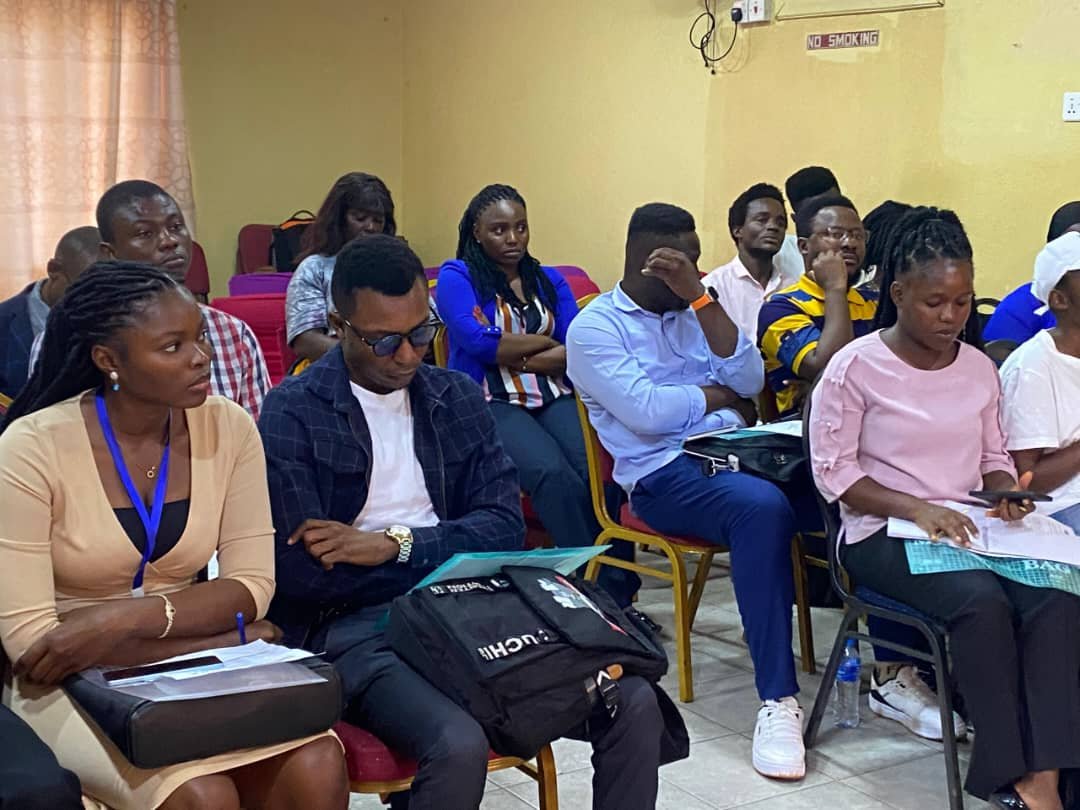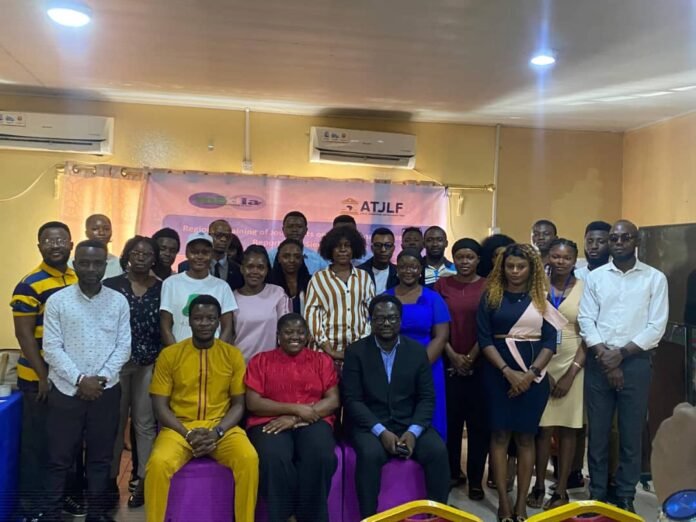By Hassan Solokoh Bockarie
The Media Reform Coordinating Group (MRCG-SL) with support from ATJLF concluded on Tuesday, 30th September 2025, at the CCSL Compound I, King Harman Road, Freetown, concluded a specialised training aimed at enhancing journalists’ ability to report more effectively on transitional justice issues in Sierra Leone.
The training, which brought together reporters from across the country, focused on deepening understanding of transitional justice mechanisms, including truth-telling, reparations, institutional reforms, and guarantees of non-recurrence. Facilitators underscored the crucial role of the media in shaping narratives that foster reconciliation, accountability, and national healing.
According to one of the facilitators, Sheku Putka Kamara, the program established a strong nexus between the media and transitional justice by demonstrating how balanced and sensitive reporting can amplify victims’ voices, promote public dialogue, and hold institutions accountable. “Journalists are central in shaping public understanding in the transitional justice process,” Putka Kamara noted, adding that accurate storytelling helps counter misinformation and prevents the reopening of old wounds.

Participants were equipped with practical transitional justice reporting techniques, including trauma-informed interviewing skills, conflict-sensitive language use, and investigative approaches tailored to human rights issues. According to MRCG, these tools will enable the media to contribute meaningfully to peacebuilding and democratic consolidation in Sierra Leone.
MRCG Head of Programs, Augustine James, underscored that the initiative is part of ongoing efforts to strengthen media professionalism in transitional justice reporting. “By empowering journalists with knowledge and skills, we are helping to change the narrative from one of division to one of healing and progress,” he said.
The training concluded with a collective identification of key transitional justice issues still facing the country. Among them were inadequate reparations for victims of the civil war, lingering impunity for past abuses, and the limited integration of transitional justice lessons into civic education. Journalists also highlighted the need for stronger institutional reforms to prevent a recurrence of violence and ensure sustainable peace.
The training reaffirmed the media’s indispensable role in transitional justice and set the stage for more responsible, inclusive, and solution-oriented reporting in Sierra Leone’s democratic journey.








